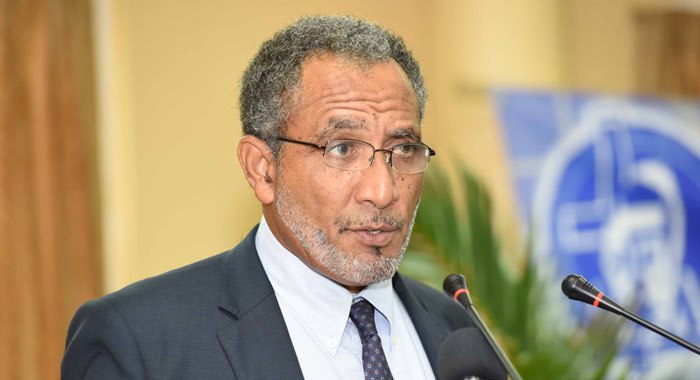(Excerpts of Dr. Friday’s presentation on the debate of the Finance Bill 2021)
The Finance Bill 2021, while it is a single revenue measure comes out of the Budget address that we debated recently. It does have very significant effect and consequences. We know what the intention of the Bill is.
The Honourable Minister said that it was to provide funding for our participation in a number of regional institutions; some of long standing and are performing useful functions in our region. However, the good intention on one hand is not the only way in which to measure the effect of having this Bill comes to parliament at this time.
During the Budget debate, the matter was raised and objections were mentioned from this side of the House. Although, I think the full implications of the one percentage point increase which in the Budget address was written as one percent increase. In reality, the one percentage point increase amounts to a 20% increase in the Customs Service Charge because it goes from 5% to 6%. The other factor to be considered and to be weighed against the good intention that the minister pointed out to this tax; is the fact that this tax is going to affect a broad range of items.
We are a small open economy; virtually everything we consume especially manufactured goods, medicine, clothing, school supplies, food items, pasta, rice, cooking oil, corned beef, sausages, Irish-potatoes, automobiles, everything is imported. What it means, the Customs Service Charge affects a broad range of items and therefore its economic impact can be masked, by saying that its only one percentage point increase from 5% to 6% and it’s only the Customs Service Charge and not the custom duties themselves.
My understanding is that the minster hopes to raise between eight and nine million dollars from this single measure that occupies his two or three lines in his Budget address. He virtually congratulated himself into saying that he didn’t intend it to be a Budget in which to raise taxes. Well if you didn’t intend it to be, then don’t raise taxes.
So, we have the increase and secondly it covers a wide range of items so that when you go to the grocery store and you full your trolley, everything you put in there would have been affected by this tax so that a basket of goods will now cost more to everybody who shops; whether you are earning $10,000 or $100,000 a year.
You’ve got to eat, whether you are rich or poor, you’ve got to be clothed, you need shelter. Therefore, the cement, galvanize, plywood, ‘two by four’, that you use to build your ‘shack’ or the tiles, fixtures for the bathroom and paint, if you are building a bigger house, all will be affected by this tax.
When we raised the issue in the Budget, it was to remind the minister that it was something to be reconsidered and at the time it was a proposal. The opposition having flagged the matter as one of concern that it was possible that the minister would have said let’s hold off on this but the first measure in this parliament is again to raise tax.
Let us not get into a debate about whether CARPHA is valuable, we know it is or PAHO is valuable, we know it is or the Seismic Research Centre, we know it is. We are using these services now and we have become familiar with them providing the services so the minister thinks that it is therefore easy for people to accept that this is something they should pay more for. We are not paying the institutions more but the people of the country are being asked to pay more out of their pockets.
The other implication is that this tax adds to the value of goods coming into the country upon which the VAT is then assessed. So, in effect it indirectly raises not the rate of the VAT but the actual amount the government may collect from the VAT because the value of the commodities will be increased because the service charge is added and then the VAT is calculated upon it. That is another broadening of the effect of this seemingly innocuous tax. It is far from innocuous.
It is intended to raise between eight and nine million dollars this is what I have seen in the public domain. If the value of import to this country is about $1 billion, it will raise about $10 million. This is coming at a time when we can hardly afford this. People are having a difficult time.
Businesses are closing, landlords are clamouring for their rent. I suspect the minister in his Ministerial Statement setting out all the various things that they have done to assist persons who have been affected directly by COVID, the formal sector of employees, to say that the government continues to provide some assistance but we all know the assistance that was provided last year that we supported in this House and called for the broadening of it so that the vendors and informal workers would also benefit from it.
When we spoke about it during the Budget debate, we raised some of these implications but now we have a situation where the people of the country are feeling the pain and there is no further relief. If the government is saying that they are continuing to provide assistance through the NIS, even the NIS is saying, we can’t go no more, you got to carry it now as government.
When they say they are going to give the omnibus operators between $500 and $600 for a one month payment that is not assured because they are still in negotiations. That does not capture the level of anxiety and the pain the ordinary people are feeling in this country. Therefore, anything that makes that harder upon them is unconscionable at this time.




